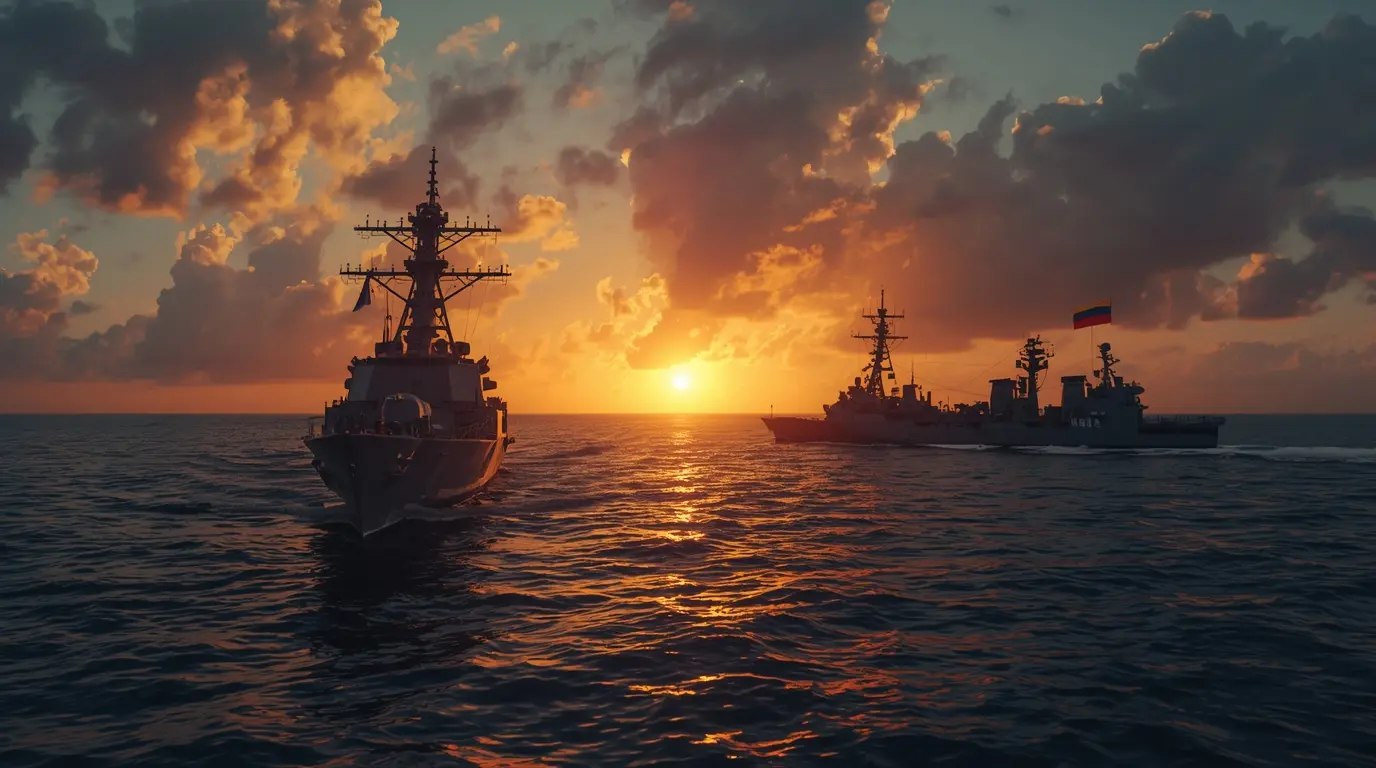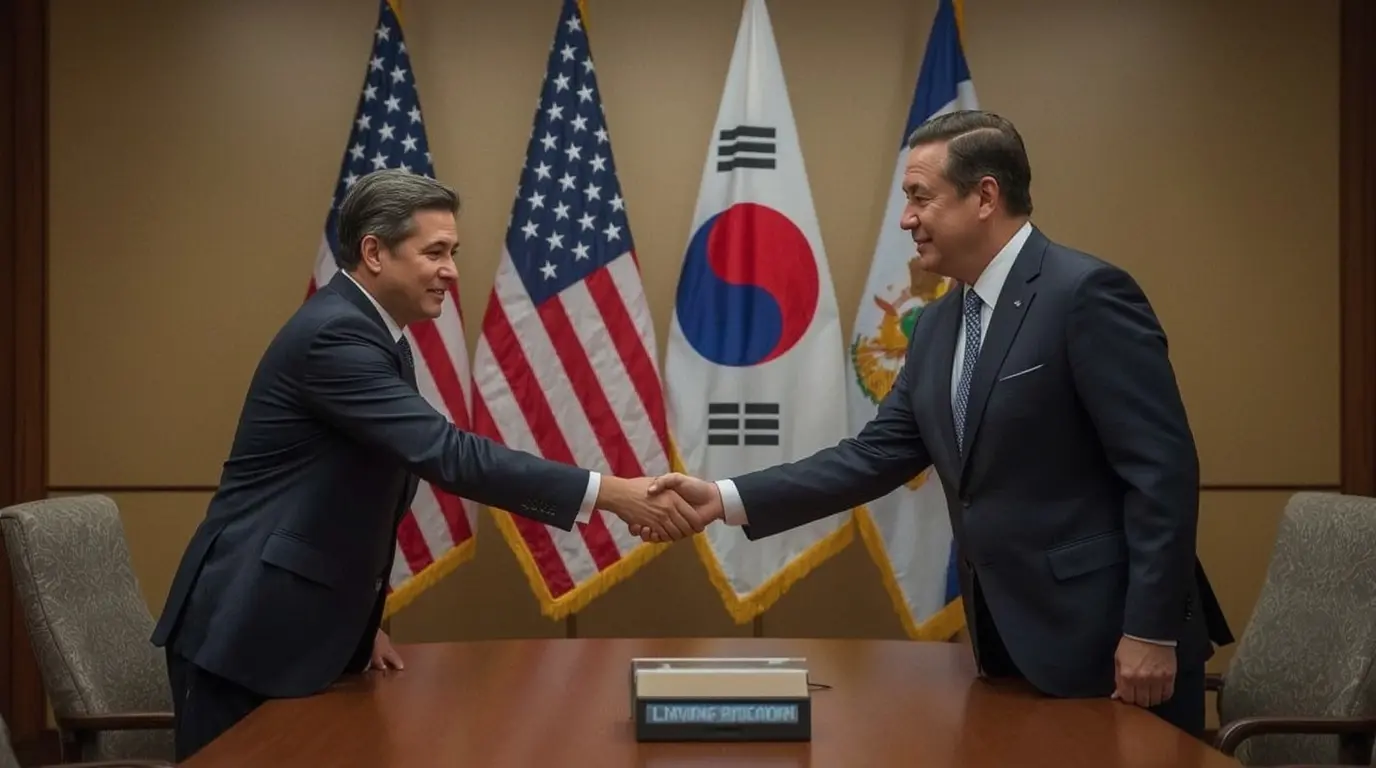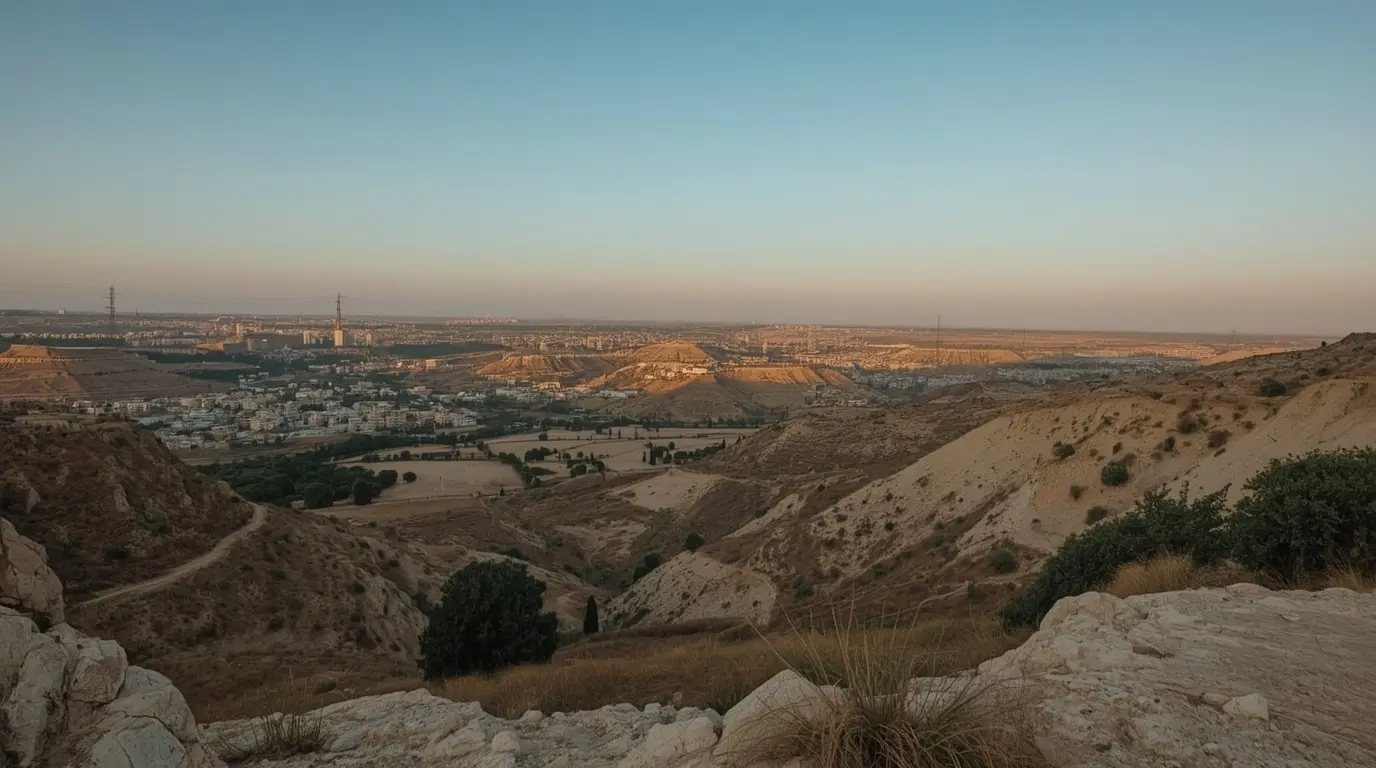Venezuelan President Nicolás Maduro has dramatically intensified tensions between countries by claiming that his navy has the upper hand against American forces naval buildup in the Carribean. Maduro’s response comes in the backdrop of the Trump administration’s deployment of warships and soldiers to the area under the pretext of fighting anti-drug wars. The standing off between the countries has resulted in Maduro preemptively activating military and civilian forces.
US Naval Buildup and Maduro’s Response
The naval forces of the US has seen strategic deployment of warships in the southern Carribean to Venezuelan waters. The US has recently deployed a nuclear submarine and seven warships accompanied by over four thousand servicemen and women. US officials claim that the added naval presence in the region will help them deal with drug cartels, specifically with the Cartel of the Suns, which was previously marked a terrorist organization by Washington.
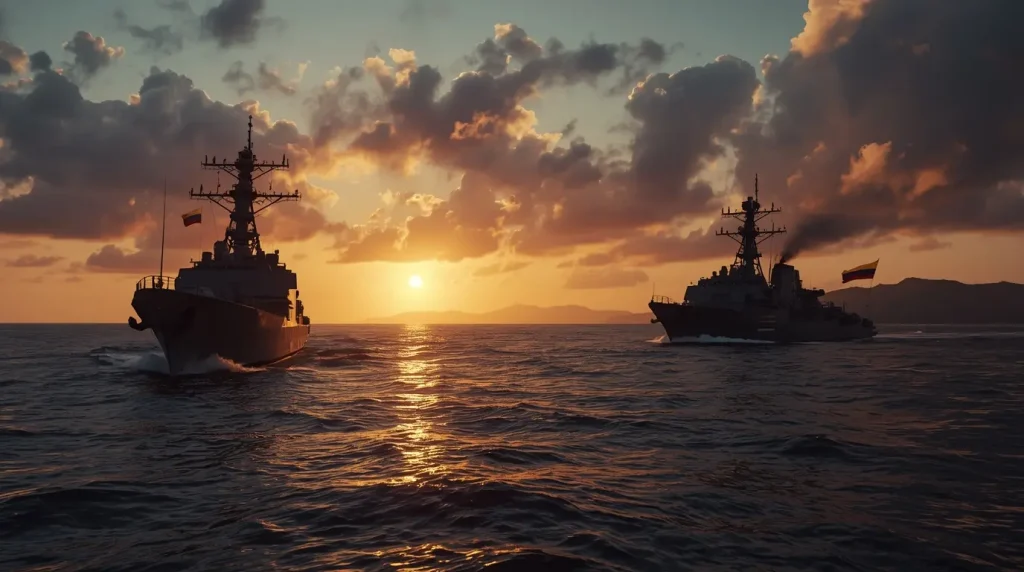
In reaction to the earlier force display, Nicolás Maduro has responded decisively. Venezuela’s government has now positioned warships and drones to patrol the country’s coastline. Also, Minister of Defense Vladimir Padrino has reported “significant” drone activity as well as naval patrols around the Caribbean waters of Venezuela. Furthermore, Maduro is actively seeking to recruit thousands of militias to enhance the country’s defenses, and has urged citizens to act to what he phrases as “outlandish threats” issued by the United States.
Maduro has been quoted as saying “There’s no way they can enter Venezuela.” He also stated that soldiers are well guaranteed the ability to defend Venezuela’s “peace, sovereignty and territorial integrity.” Strength and boldness has been the mark of Maduro’s defiance and even as he rages against the US, he is outmatched by their overwhelming military force.
The Cartel Allegations and Payment
Nicolas Maduro’s supposed links to drug trafficking have received renewed attention under the Trump administration. U.S. authorities accuse Maduro of running the Cartel de los Soles (Cartel of the Suns) which is a drug trafficking organization and is made up of senior Venezuelan officials. Just recently, the U.S. Department of State capped its bounty for Maduro to $50 million for information that aids in his capture or drug-related conviction—this is the highest reward in the history of the Narcotics Rewards Program.
These charges form part of a wider set of allegations made against the Maduro government. In March 2020, he was indicted in the Southern District of New York for charges of narco-terrorism, conspiracy to import cocaine, and various firearms offenses. The U.S. government alleges Maduro was part of a corrupt and violent conspiracy of narco-terrorism alongside FARC, which is designated as a Foreign Terrorist Organization.
Global Diplomacy and Actions Taken
Rising tensions have crossed borders with Venezuela’s UN ambassador, Samuel Moncada, hearing out UN Secretary Antonio Guterres over the U.S. naval buildup. Moncada argued the deployment was, “a massive propaganda operation to justify what the experts call kinetic action, which means military intervention in a sovereign and independent country which is no threat to anyone and is not a threat to anyone”.
The ambassador particularly focused on the question on the need for a nuclear submarine’s deployment for anti-drug operations, labeling it “ridiculous” to entertain the notion that such equipment was anti-drug trafficking relevant. This action taken by the Maduro government seeks to justify the U.S. actions as breaches of international law and the UN Charter.
In spite of these protests, the actions taken by the U.S. government have not been changed. The Press Secretary, Leavitt, claimed that “Trump was willing to intervene using every element of American power available to him” to “stop drugs from flooding into” the country. She also added that “many Caribbean nations have applauded the administration’s counter drug operations and efforts”.
Background Information of US Venezuela Relations
The differences of opinion between the Venezuela government and the US has gone way back and it is definitely not a recent development. Hugo Chavéz, a self-proclaimed socialist took Venezuela’s presidency in 1999 and it is around this period where the two countries started and maintained strained relations. In chronological order for Venezuela the strained relations started with the US ambassador being expelled in 2008, Venezuela losing its Guaido recognition and the US accepting Guaido as President in 2019.
The problems are further escalated as Maduro is elected as president. Tensions have increased and remained heightened as US imposed sanctions, oil embargo, and other sanctions on Venezuela individuals and corporations in 2017. The Maduro presidency benefits from these sanctions and currently sees the US as a bane for Venezuela, not a useful ally.
Such a Response from the US has not gone unpunished and Maduro has taken action in the form of US military deployment. Military assets are not the only resource entities Maduro is utilizing, civilians are also being called to action. After the US threats, Maduro’s call to action has led House wifes, government officials and other civilians to line up to to join the militia in the United States Venezuela.
Furthermore, Venezuela has sent 15,000 troops to its border with Colombia to fight drug trafficking and other criminal organizations. This does seem to fit into Maduro’s strategy to show his government acts to defend the sovereignty of Venezuela and combat narcotics trafficking. U.S. allegations claim the opposite, and Maduro’s earlier pointed denials of any drug-related activity have not helped his case.
Venezuela’s Maduro has denied drug trafficking allegations with the statement that Venezuela is “free of coca leaf crops and free of cocaine production.” Unlike Colombia, of course. His government boasts drug seizures of 53 tons for the year and the dismantlement of shipyard drug transport seam submersible shipyard.
Expert Analysis and Future Prospects
Gunson, like many other analysts, has dismissed the possibility of an actual US invading or striking Venezuela with missiles. He explained that the this recent show of military prowess was merely an attempt to destabilize the US and force Maduro to negotiate something.
Many Venezuelans seem to share this view. There is an existing belief that the country has been on a US hitlist for many years. Memories of the failed Trump “maximum pressure” campaign to force Maduro from power likely contribute to skepticism.
Nonetheless, the scenario continues to be immensely unpredictable. With both factions indulging in military posturing along with heated exchanges, the possibility of error in calculation or unintended conflict cannot be completely ruled out. The forthcoming weeks will be important in determining whether this specific conflict is resolved through negotiation or further deepens the conflict.
Conclusion
While the world is glued to the geopolitical drama, President of Venezuela is ignoring the American pressure. The president of Venezuela has openly reserved to the excuse of national sovereignty against what he calls imperialist onslaught. On the other hand, the office of the president Trump believes they are acting in the interest of fighting drug trafficking and American interests.
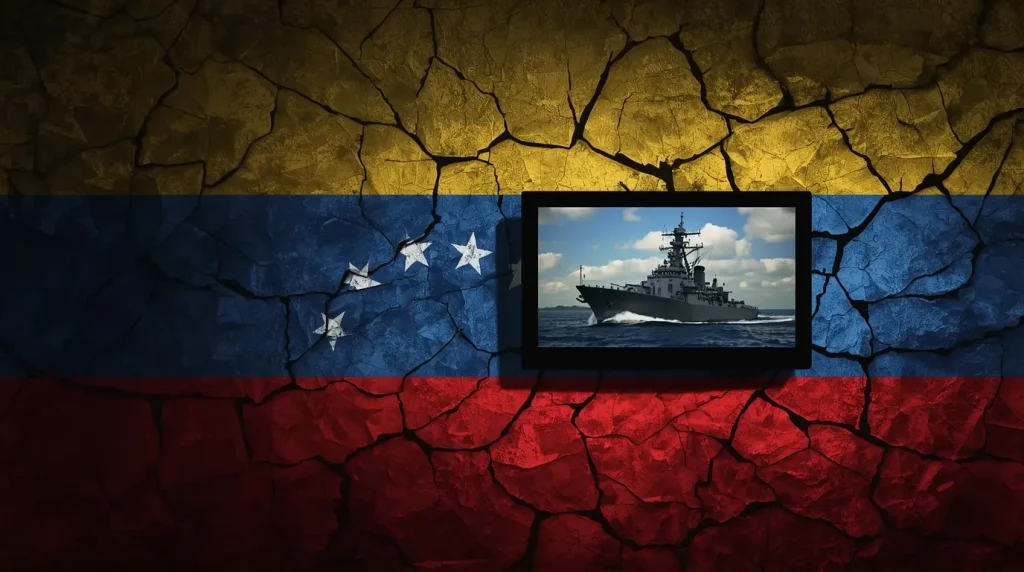
The situation presents the Venezuela and The United States conflict with a very important turning point. Whether resolved through diplomacy or military threats, this conflict is bound to affect the stability of the region and the governance of Maduro in the future. What is sure is that Maduro does not seem to want to give up easily, suggesting an enduring conflict between the two capitals.
For more incredible stories of everyday news, return to our homepage.


